The Lower Elementary Classroom
The ‘Prepared Environment’ for students aged 6-9 is characterized by much more social conversation between children as age 6 marks a developmental shift in social and emotional growth. The child now engages in much more verbal communication with peers during both work and play. The older students benefit from helping the younger and through teaching and working together knowledge is reinforced. Empathizing with the needs of children who are smaller and more expressive can be conducive to humanizing a child’s character. While classroom lessons are still given to individual children, it is more common that small groups of children receive lessons based on their developmental standing within the curriculum. Because of the open-endedness of the Montessori curriculum there is no ceiling as to what a child can do.
Cognitively, the Lower Elementary-aged child is repeatedly engaging their imagination, asking the questions “Why? or How? or When”? The Montessori curriculum uses the child’s natural sense of wonder and awe to explore universal questions of scientific, historic and cultural significance. The manipulative learning materials and experiences of the Casa classroom have provided the foundation for the many hands-on learning opportunities of the Lower Elementary class.
Various learning styles are engaged through the child’s use of materials that teach Math or Language concepts. Almost every lesson contains an opportunity for multi-intelligence experiences for learning. As early as age 6 our students undertake accountability for their learning through partnership in 3-way conferences.
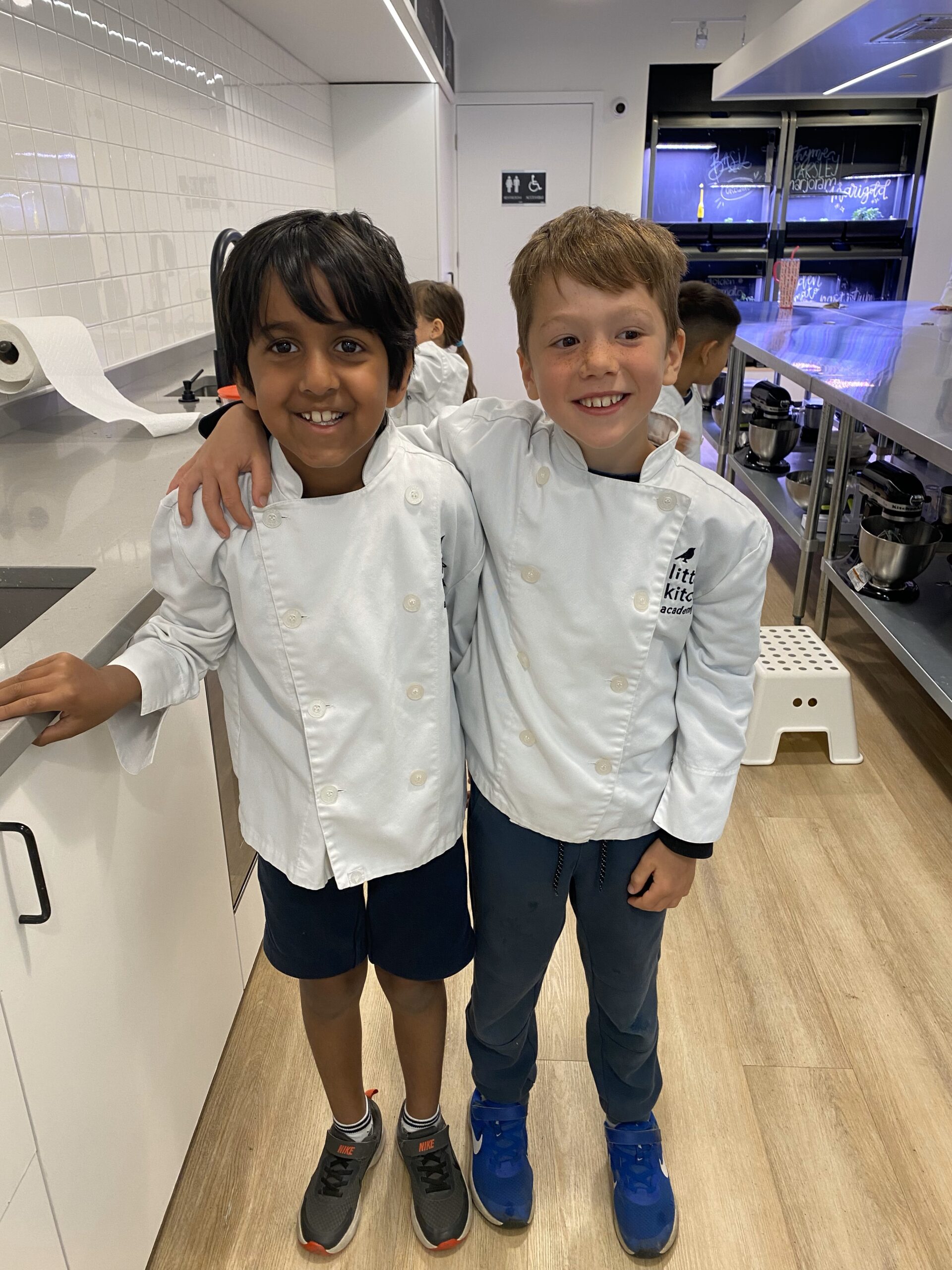
The Upper Elementary Classroom
The ‘Prepared Environment’ for students aged 9-12 years is characterized by ‘going out’; to move beyond the walls of the classroom to fulfill their desire for learning. Service opportunities to others both in and outside of the school are encouraged and personal research is developed using the Internet and library in addition to classroom-based material. Socially and emotionally this child has developed the art of reason, and practices the use of this skill throughout each day.
This is the only level in our program which contains a 4 year age span. We include Year 7 students to remain in, and graduate from our Upper Elementary program. This final year has a particular emphasis in the area of Personal Planning and Life Skills as these students experience graded evaluation of their classroom work in addition to using a criteria-based evaluation profile. This practice prepares them for the experience of the graded system of evaluation used in traditional high school programs.
Students in the Senior Years at BBMS (Year 6 and 7) have the opportunity to participate in the Montessori Model United Nations program. This program, which takes place every 2 years, involves year-long classroom or after school study, participation in mid-year working sessions and social meetups with global peers, and then culminates in a multi-day global education simulation experience that enables our Year 6 and 7 students to learn about the operations of the UN and its role as the world’s largest international peacekeeping and humanitarian organization.
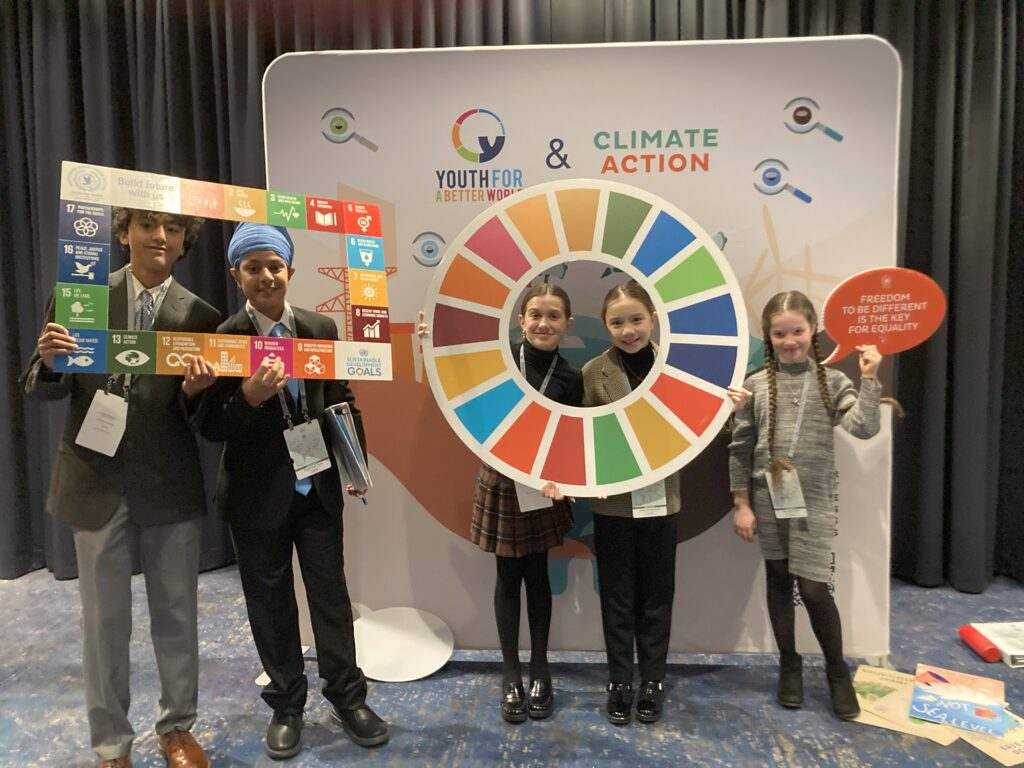
Montessori Curriculum Areas
Language lessons consist of a variety of writing, reading and communications experiences, as language is fundamental to thinking, learning, and communicating. Lessons include oral presentations, writing, reading, spelling, penmanship and grammar. In each area, we incorporate thinking and reasoning, group discussion and individual work.
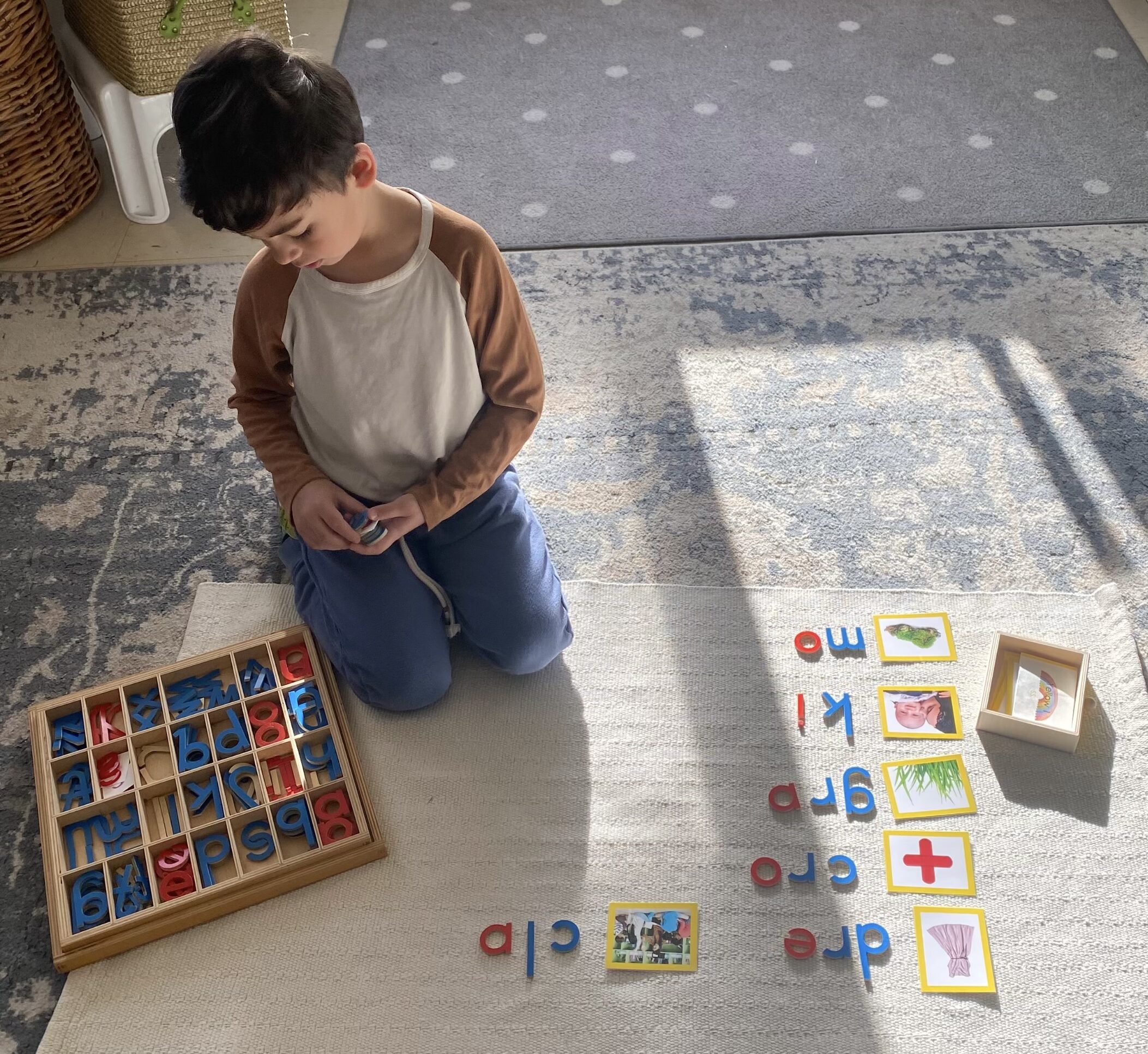
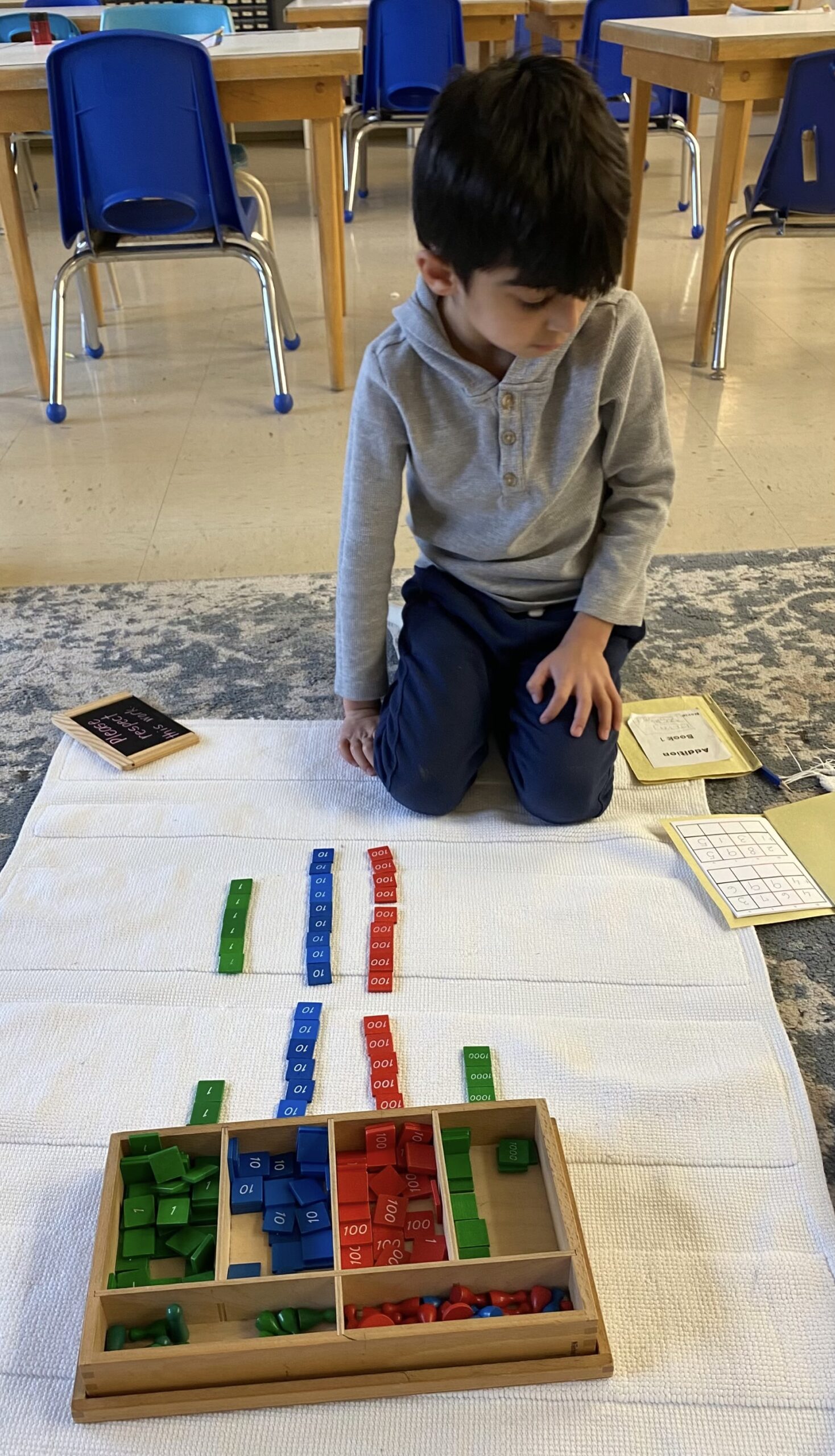
Mathematics lessons are first presented using materials so that students experience math concepts using concrete, highly visual, self-correcting manipulatives. The Albanesi math system provides a sequentially-leveled series of exercises, which enable students to work at their own pace. An initial assessment determines the appropriate Work Plan and is a benchmark for monitoring progress. Each Work Plan has a number of cards to complete. Once mastered, an assessment is given and a new Work Plan is begun. Concepts are cycled through the program so that review and new lessons are balanced. Math work is supplemented with other practice and review work from workbooks based on the students’ work level.
Geometry is taught using a variety of Montessori materials and traditional geometric tools. The main purpose is to provide interactive experiences with geometry through multiple hands-on exercises. Complex ideas are presented concretely, allowing the students to analyze and slowly develop deductive logic.
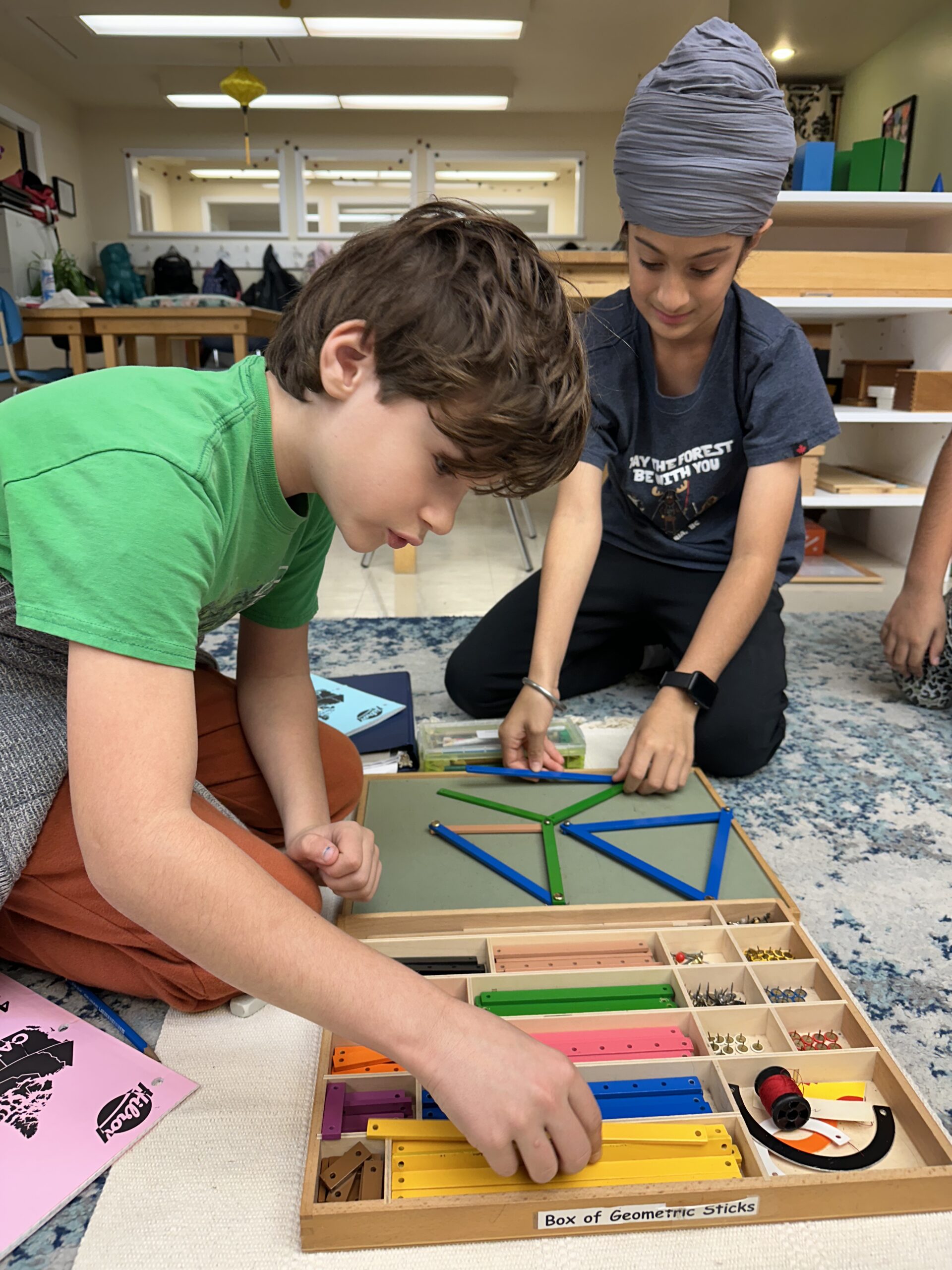
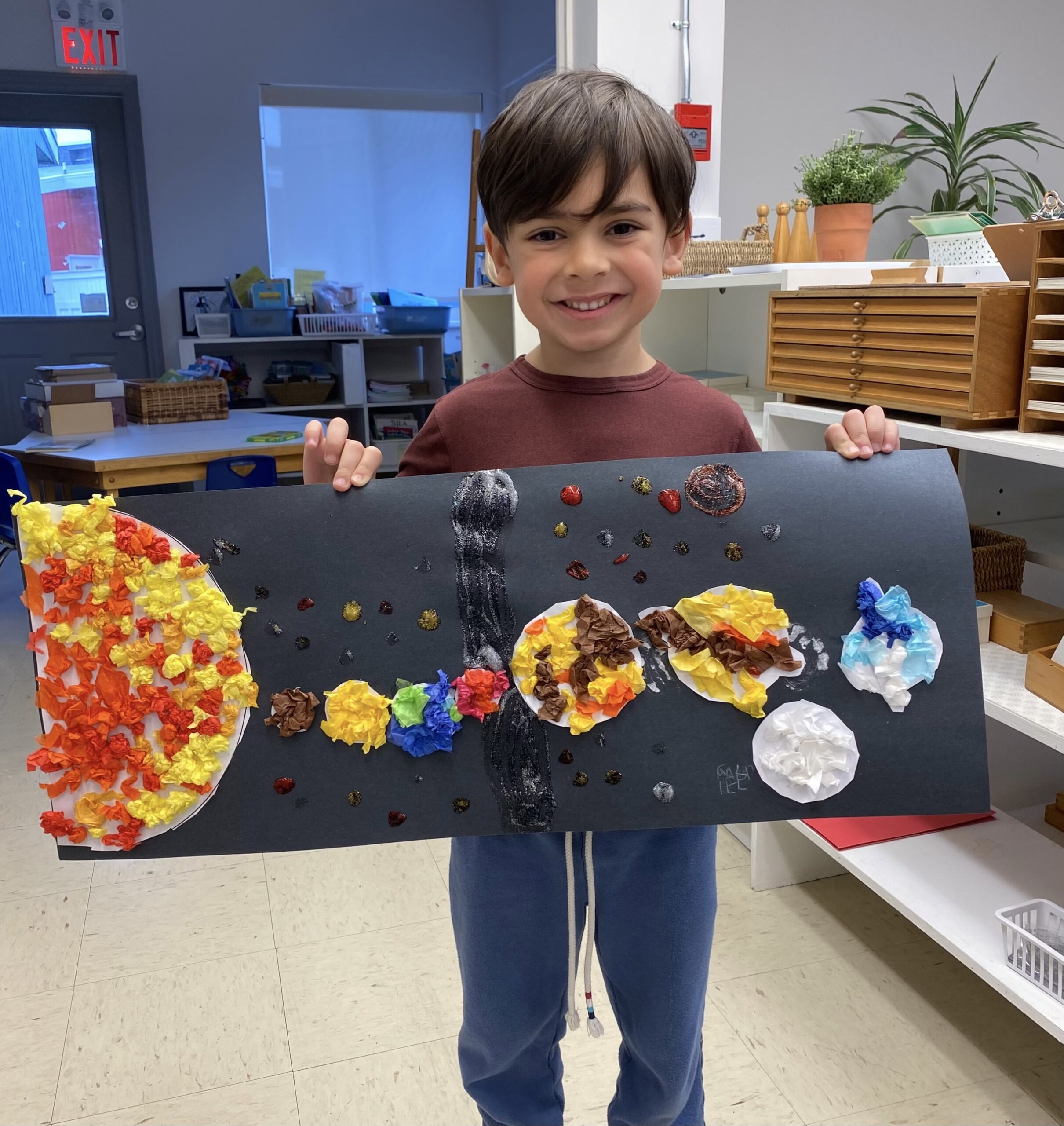
Culture subjects include botany, science, geography and history and are based upon Montessori’s Five Great Lessons. The goal is to provide students with a global perspective of history, world cultures, and science, and to create an impression and appreciation for all that has come before them, from the formation of the universe through to present day. Students study the story of life on Earth, through the geological eras to the emergence of the earliest humans. Finally, students examine the beginning of civilization through the stories language and mathematics
In Art lessons, children develop skills in drawing, paper craft and other media, while increasing their skills in hand-eye coordination, concentration, patience and working towards high quality outcomes.
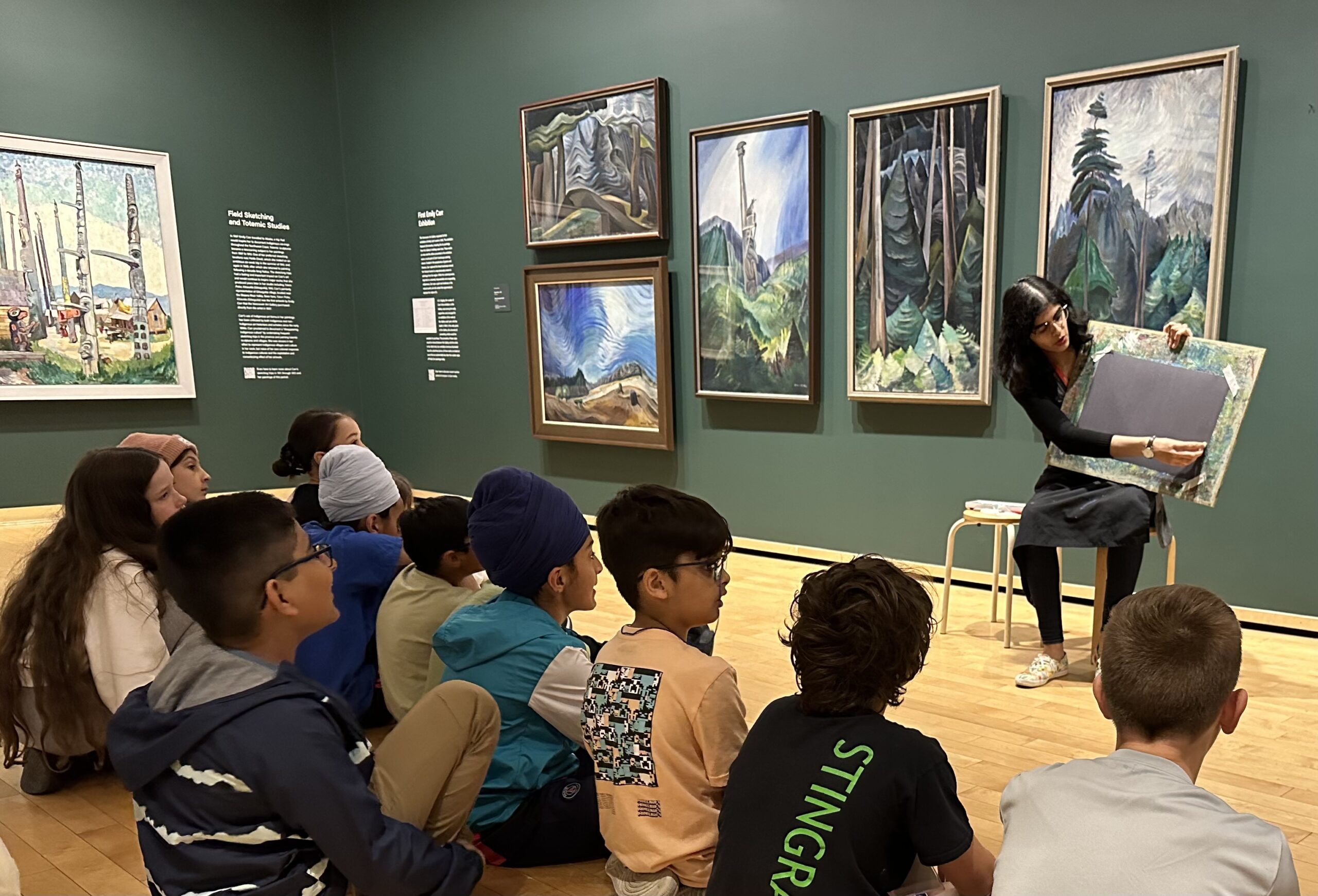
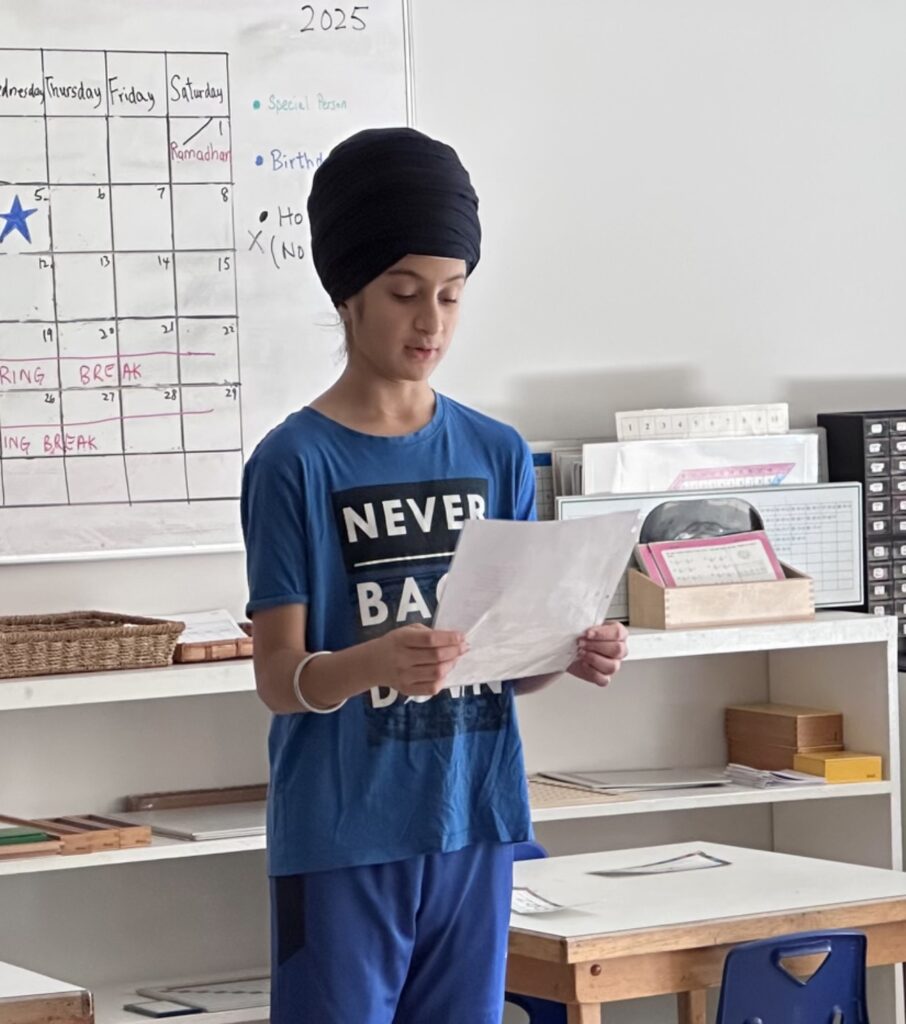
French is taught by a French-language teacher once per week, from Year 1 through to Year 7. Students are introduced to the French alphabet and phonetic letter sounds, nouns and pronouns, basic verbs and verb conjugation, sentence formation and grammar, and oral conversation skills. Games, art, music and drama exercises are incorporated into instructional activities to make learning fun!
Physical Education takes place at various community facilities throughout the school year, as well as at our outdoor school facilities. Students may receive specialized instruction in activities such as ice skating, yoga, swimming, and track and field. The development of coordination and ball skills is also a focus. Promoting physical development and lifelong wellbeing in a non-competitive environment is the core foundation of our physical development and health curriculum.
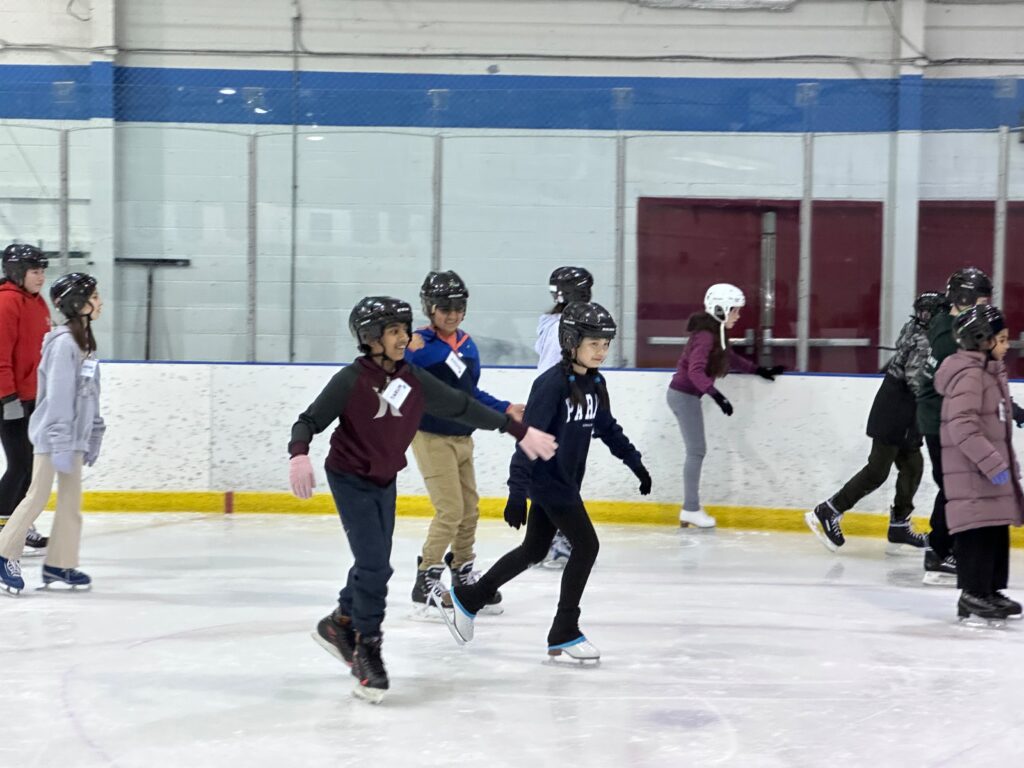
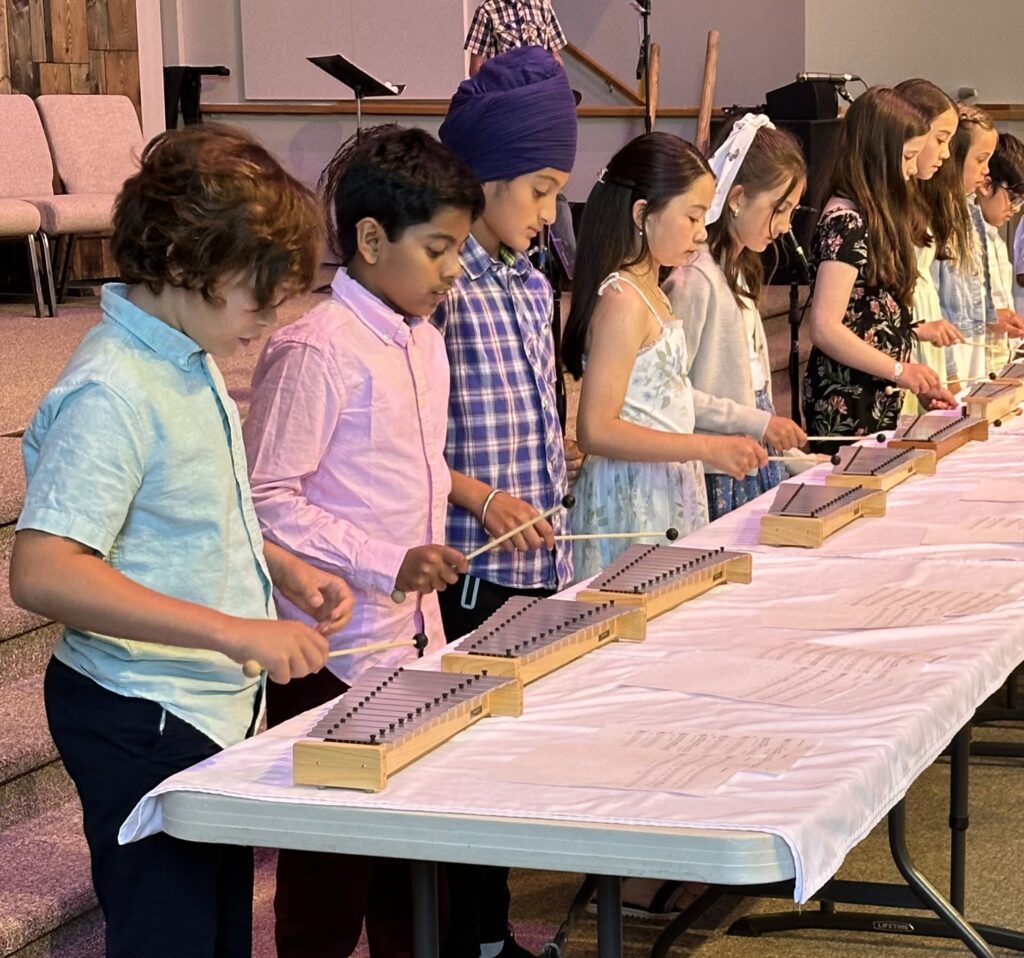
Music studies are provided formally once per week, although songs, recordings and rhythm are incorporated into class daily. A music specialist comes to the classroom and teaches songs, movement, musical games, rhythm and musical history. The entire study body is involved in a variety of performances every year.
Special Activities occur throughout the school year in the form of special event days, such as Peace Day, United Nations Day, school concerts, Earth Day, Sports Day and various field trips and community service-oriented activities. Students are fully engaged in these special events, which are designed to introduce the concept of socially responsible citizenship and participation in the life of their school and greater community.
Social-Responsibility education includes lessons that teach ways in which students demonstrate and learn practical skills to become a responsible, caring and accountable member of the classroom and community. Students learn about social-emotional literacy and leadership by understanding the basic needs of all people, defining their class values and beliefs, as well as developing skills to self-manage their behaviour, as defined by William Glasser and the principles of Choice Theory. Students engage in lessons, group work, role-plays and discussions and are supported to use the tools presented whenever there are conflicts or misunderstandings with peers. Students develop leadership skills and perform service in order to become leaders in the school and in our community.